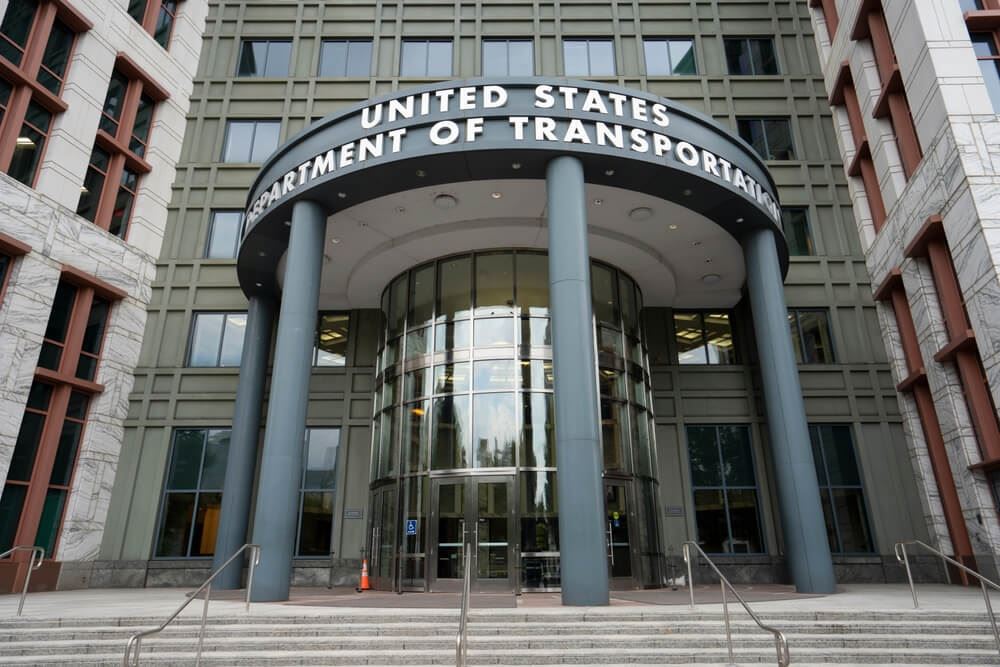Governmental Rules and More Rules: What’s An Advisor to Do? Part 2
by Paul Ruden /
Photo: Tada Images / Shutterstock.com
This is the second installment in a series intended to familiarize travel advisors with the extensive regulations of the Department of Transportation and the Federal Travel Commission that apply to your business. In this article, we will address the DOT’s PART 399—STATEMENTS OF GENERAL POLICY. The primary rules of interest are stated in § 399.79 Policies relating to unfair and deceptive practices.
Some points of comfort
Travel advisors can be assured that if suspected of violating DOT’s unfair and deceptive practice rules, they will not be blindsided by a public complaint. The regulations (14 CFR §399.79(e)(1)) provide that:
Before any determination is made on how to resolve a matter involving a potential unfair or deceptive practice, the U.S. Department of Transportation’s Office of Aviation Consumer Protection will provide an opportunity for the alleged violator to be heard and present relevant evidence…
Such evidence may include: (1) I didn’t do it, (2) I did it but there are mitigating circumstances, (3) I did it, but it wasn’t unfair or deceptive, and/or (4) the harm was limited, and I have taken steps to mitigate the harm. If the issues are resolved through such negotiation, DOT may issue an order that includes a negotiated penalty.
If the issues are not resolved that way, a formal complaint may be issued, leading to a hearing before an administrative law judge. In the worst case, DOT may bring a civil action in a federal district court but that would be most unusual and reserved for the most egregious cases.
In all enforcement situations, you should be represented by competent counsel.
Procedure to substance
Moving from procedure to substance, the General Policy regulations include thirteen rules applicable to advisors of any size. A special section applies to advisors that sell air transportation online and are not small businesses under Small Business Administration’s standards. Here then are summaries of the acts by advisors that DOT will find are unfair/deceptive practices:
1. Inducing members of the public to believe that you are an air carrier;
2. Using the advisor’s name, trade name, slogan, or an abbreviation “in connection with the name of an air carrier with whom it does business,” in a way that might “mislead or confuse” the traveling public regarding the “agency status of the ticket agent;” (Note: I have no idea what that means but please don’t do it.)
3. Misrepresenting the “quality or kind of service, type or size of aircraft, time of departure or arrival, points served, route to be flown, stops to be made, or total trip-time from point of departure to destination;”
4. Misrepresenting the qualifications, safety record or certification of pilots, aircraft, or air carriers;
5. Falsely representing that passengers are directly insured when they are not;
6. Misrepresenting fares and charges for air transportation or related services;
7. Misrepresenting that special discounts or reductions are available;
8. Falsely representing that special priorities for reservations are available to members of the public generally.
9. Selling air transportation to persons on a reservation or charter basis for specified space, flight, or time, or representing that such a reservation or charter will be available or has been arranged, without a binding commitment with an air carrier;
10. Selling or issuing documents to passengers to be used for air transportation knowing or having reason to know or believe that such documents will not be honored for air travel;
11. Failing to refund promptly when contracted service cannot be performed or misrepresenting when refunds are obtainable, thus depriving persons of the immediate use of the money to arrange other transportation or forcing them to suffer unnecessary inconveniences and delays or requiring them to accept transportation at higher cost, or under less desirable circumstances, or on less desirable aircraft than was represented at the initial sale.
12. Misrepresenting the handling or routing of baggage or other property, or the loss or tracing thereof, or failing or refusing to honor proper claims for loss of or damage to baggage or other property.
13. Misrepresenting the personal or organizational requirements to qualify for charter or group fare flights.
The special rule for online sales by “large” online advisor businesses:
Failing to disclose and offer Web-based discount fares to prospective passengers who (a) contact the advisor through, for example, telephone or in the advisor’s place of business and (b) indicate they are unable to use the advisor’s Web site due to a disability.
Note that “misrepresenting” includes any representation made in advertising or orally which is “false, fraudulent, deceptive or misleading, or which has the tendency or capacity to deceive or mislead.”
Overall, the concept of these rules is that you must be truthful and precise in what you convey to customers. If you are, the rules pose no real threat.
But there is more.
14 CFR § 399.83 states that it is an unfair or deceptive practice to tell, by any means, a prospective traveler that a scheduled flight reservation is confirmed before the passenger has received a ticket specifying the confirmed reserved space “unless the tariff of the particular air carrier or foreign air carrier provides for confirmation of reserved space by the means so used.”
That rule is confusing at best in the modern age. Travelers today “receive” “tickets” by electronic communications in virtually all cases. Tariffs for most purposes were suspended many years ago. That said, the safest course is simply to be sure that no statement of confirmation is given to a consumer until an electronic confirmation is delivered.
As indicated above, there is little here that is surprising or implies major issues for the conduct of responsible travel advisor businesses.
In the next section, we will delve into the price advertising regulations that are more complex and in today’s environment more important in day-to-day advisors’ work.






















